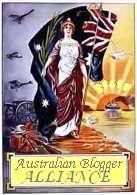ACTION, TAKE ACTION, THE JOURNEY TO FIND YOUR LOST SELF BEGINS WITH ONE STEP.
Peter King: Bad guys also have rights, PMAugust 10, 2004
I HAVE long held concerns about the detention without charge at Guantanamo Bay of David Hicks and Mamdouh Habib, both Australian nationals. I doubt that the US is fulfilling its duties under the Geneva Conventions and the International Covenant on Civil and Political Rights.Let's assume Hicks is all he is alleged to be by the US: that he was involved with al-Qa'ida and supported the Taliban regime. Still, as an Australian and a human being, he is entitled to a standard of defence that shows the world that principles we take for granted in our legal system are fundamental. Otherwise, what is the war on terror for?
Hicks should be protected by the third Geneva Convention on the treatment of prisoners of war and by the ICCPR. Australia and the US are signatories to both treaties.
The Geneva Convention describes a prisoner of war as a member of militia or military corps involved in armed conflict and one who has "fallen into the power of the enemy". Hicks meets this definition. The Taliban regime was the de facto government, so captive members of the Taliban armed forces should be treated as prisoners of war. This conclusion is suggested by the very term "the war on terror".
Serious issues I raised in the parliament last week concerning allegations of torture of Australians in Guantanamo Bay and Egypt deserve a separate Australian investigation as soon as practicable, or at least the attachment of an Australian legal officer to an urgent US investigation.
President George W. Bush has listed Hicks as a person eligible for trial before US military commissions. At least his trial appears to be progressing, albeit belatedly, whereas justice continues to be denied Habib -- who, it is claimed, is in dire need of medical treatment.
The ICCPR states that prisoners should be given an open trial within a reasonable time. But if the Afghanistan theatre is to be seen as a battle in a longer war against terror, the US can argue it is entitled to hold prisoners for as long as the war continues. This could go on forever.
To pick up combatants in Afghanistan and hold them indefinitely is a serious distortion of the rules of international law. Under the ICCPR, everyone has the right to be tried in a timely manner and to know the nature of their alleged crime.
It is some comfort that the military commissions provide some fundamental protections, including the right to representation by defence counsel, a presumption of innocence, a standard of proof beyond a reasonable doubt, the right to obtain witnesses and documents for the defence, the right to cross-examine prosecution witnesses and the right to remain silent without adverse inference.
However, the seemingly indefinite holding of those the UN rightly has deemed prisoners of war without trial is of very real concern.
Besides, access to prosecution evidence has been restricted. The reasons given include secrecy and the sensitivity of intelligence operations. As the international security challenge is in many ways unprecedented, new responses consistent with human rights are demanded. Perhaps a joint US-Australian body could mediate between prosecution and defence to decide what evidence the prisoner should have access to.
However we deal with this problem, the US should not judge for itself what constitutes a national security threat and deny natural justice to those it accuses of terrorism. Otherwise, the trial will look like a Star Chamber without proper rules, and this is absolutely unacceptable.
Justice Minister Chris Ellison deserves praise for gaining concessions on Hicks's behalf, including the dropping of the death penalty, his transfer to Australia to serve a penal sentence if convicted, his option to retain an Australian lawyer with whom he could communicate unmonitored, and for his trial to be held openly.
Yet these concessions clearly fall short of what the Australian Government should demand for its citizens. For example, under Bush's trial order, accused terrorists will not have an appeal mechanism beyond a military commission procedure.
Although the Australian Government understands Hicks will be afforded no less favourable treatment than any other non-US citizens tried by military commissions, we should push for minimum standards that Australians normally enjoy at home.
Ad-hockery in the trial of accused terrorists will undermine the legitimacy of the process. While Habib awaits news of his trial process, the American John Lindh has entered a plea bargain in a US civil court, Yasser Hamdi is detained without charge in Virginia, Zacarias Moussaoui (a French citizen) has been tried in a civil court, and British citizen Richard Reid has been tried in a civil court.
In a parliamentary motion on September 17, 2001, John Howard rightly condemned the attacks on New York, saying they represented "an assault not only on the people and the values of the United States of America but of free societies everywhere".
But I am concerned that Australia's Government is not being seen to safeguard our values in terms of independence of foreign policy and protection of the rights of our own nationals. For, although we support the efforts of the US to make the world a safer place, if we are not satisfied with the standard of justice afforded our own people, should we not protest?
ABSOLUTELY WE SHOULD BE PROTESTING.






0 Comments:
Post a Comment
Subscribe to Post Comments [Atom]
<< Home